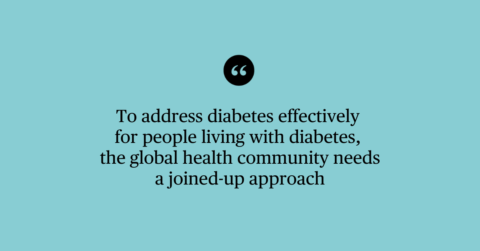COVID-19 has reminded us that those with chronic conditions and co-morbidities are often the most vulnerable and have suffered the most throughout the pandemic. Weak health systems are hampering our collective ability to proactively deal with health crises and COVID-19 is a wake-up call to just how important it is to make strong investments in NCD prevention and control, and to ensure it is a core underpinning of any nation’s pandemic preparedness and response plan. Indeed, lack of country readiness and capacity to absorb remains an ongoing challenge as treatments become available to tackle COVID-19 itself, not to mention other diseases and health issues.
We applaud the WHO’s continued efforts to ensure NCDs stays high on the global health agenda, for example with the recent investment case for NCDs from the Lancet NCD Countdown 2030 work, and in launching the recent first-ever Heads of State International Strategic Dialogue on NCDs in Ghana. Whilst this is important, we believe such high-level advocacy opportunities need to convert into concrete access outcomes for people living with NCDs on the ground. To achieve this, we urge WHO to find ways to leverage the capabilities of all non-State actors and reiterate the point that the private sector remains committed to finding ways forward to improve access for those living with NCDs. The launch of innovative multi-stakeholder access initiatives on NCDs such as ATOM Coalition is a move in the right direction in this regard. Efforts to tackle NCDs must be redoubled, combined with implementation of the best buys and significant improvements in sustainable financing.
We believe the private sector has been and remains a necessary and critical partner in addressing the gaps in response to NCDs. We remain a committed stakeholder in tackling NCDs and will continue working with others to build access solutions and contribute towards stronger health systems to improving the lives of people living with NCDs.











